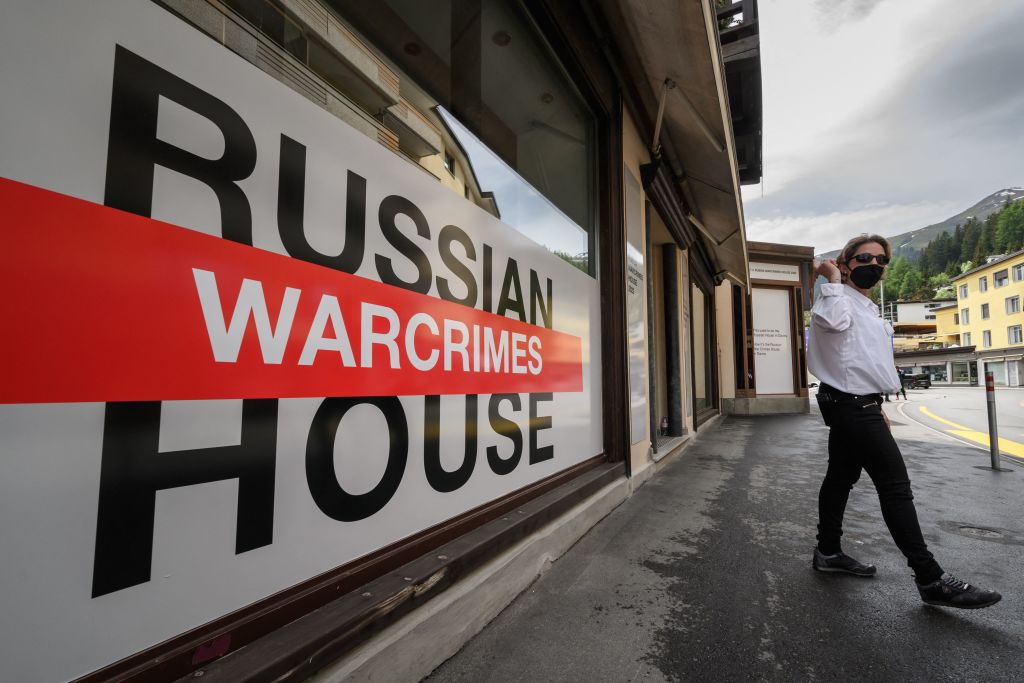
The global elites aren’t the only ones alighting in Davos this week, as the World Economic Forum’s annual conference kicks off. A group of Ukrainian artists have taken over a site that typically hosts Russian delegates—who were disinvited to this year’s event—to stage an exhibition about the atrocities of the ongoing war.
In years past, Russia House—as the building has come to be called—was where you’d find Russian diplomats and oligarchs entertaining VIPs from other countries at all hours of the day. Visit the address this year, and you’ll find a different scene, one filled with photographs and other depictions of extreme violence in besieged Ukrainian cities.
Images on view depict detached limbs, lifeless corpses, and razed buildings. A shot by Mstyslav Chernov shows a father crying over his son’s bloody body on a gurney in a Mariupol military hospital. Another by Maxim Dondyuk finds a firefighter battling an out-of-control blaze at a Kharkiv market. An 11-minute video by Oleksiy Sai details scores of war crimes allegedly perpetrated by Russian soldiers—rape, murder, and mutilation among them.
“This used to be the Russian House in Davos. Now it’s the Russian War Crimes House in Davos,” a sign in the building’s front window reads.
The show, which opened today and will remain on view through to the end of the summit on May 26, was jointly organized by the Victor Pinchuk Foundation and the Pinchuk Art Centre in Kyiv, two organizations founded by billionaire Ukrainian businessman and philanthropist Victor Pinchuk.
Ukrainian businessman and oligarch Victor Pinchuk delivers a speech at the opening ceremony of the “Russian Warcrimes House” exhibition during the World Economic Forum (WEF) annual meeting in Davos on May 23, 2022. Photo: Fabrice Coffrini/AFP via Getty Images.
Pinchuk was among several Ukrainian political and humanitarian leaders to speak at the event’s opening, which was live-streamed on Youtube.
“If we tell the story about this tragedy as widely as possible, maybe it will save some lives. Maybe it will motivate politicians around the world to send weapons quicker, to impose sanctions [that are] more severe,” he said somberly.
Pinchuk spoke about his work on the Babyn Yar Holocaust Memorial Center, reflecting on the similarities between the Nazis’ mass murder of Jews at the site in 1941 with Russia’s attacks on Ukraine this year. (Russia bombed Babyn Yar in March.) “We don’t need, ‘Never again,’ in the future,” he said. “We need, ‘Stop now,’ immediately.”
Throughout the week, public talks and other programs will take place at the site.